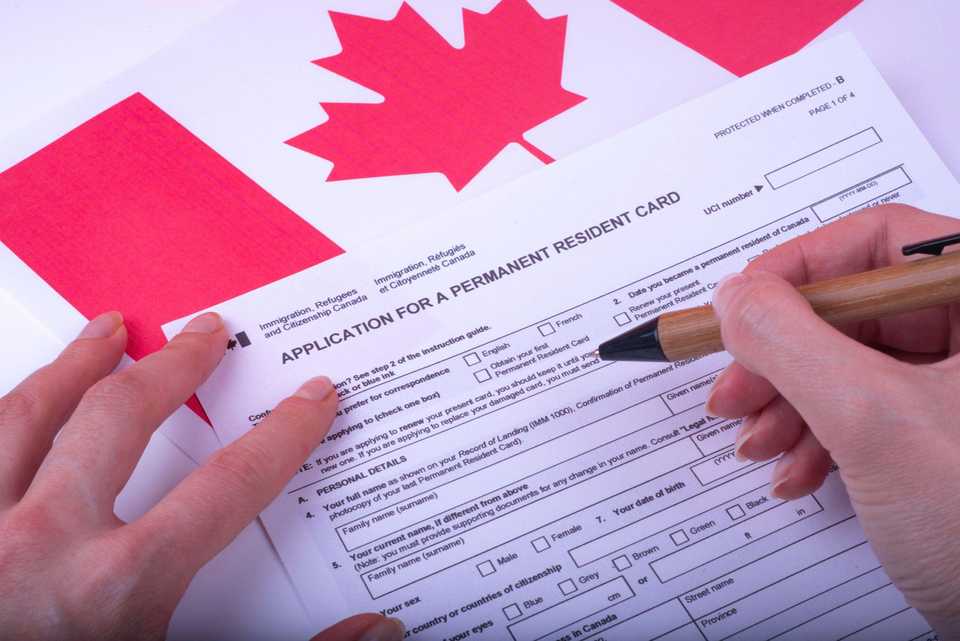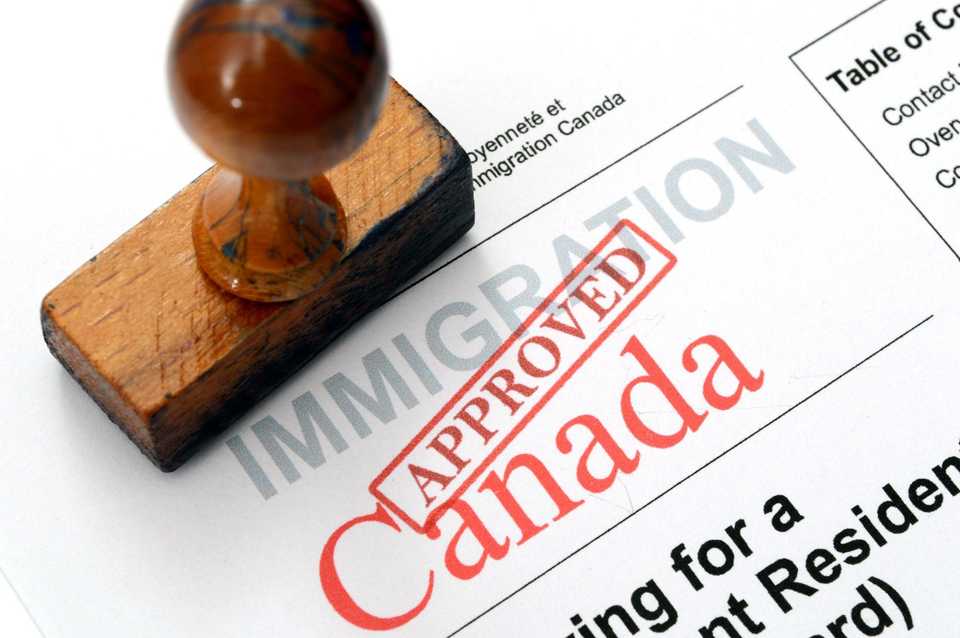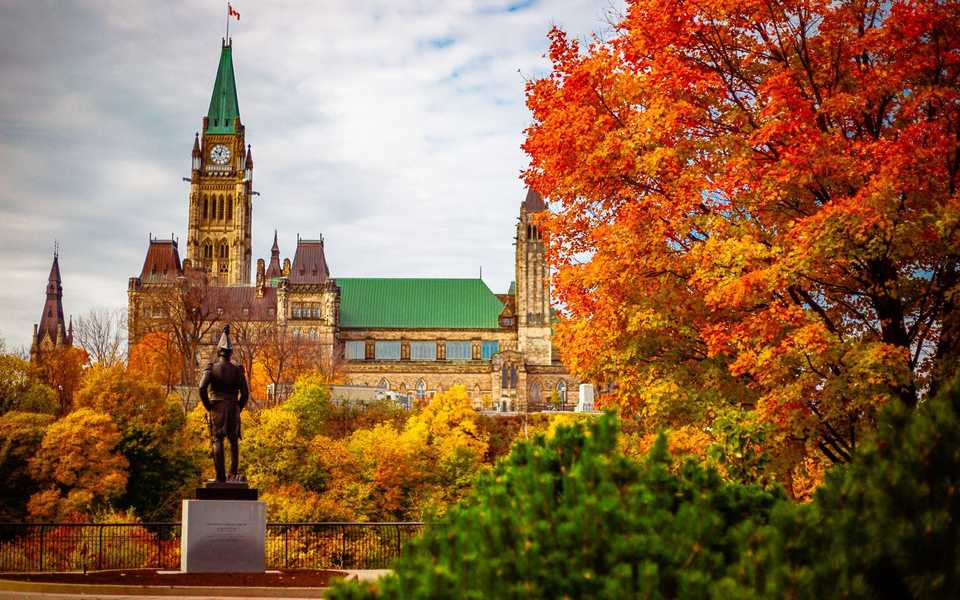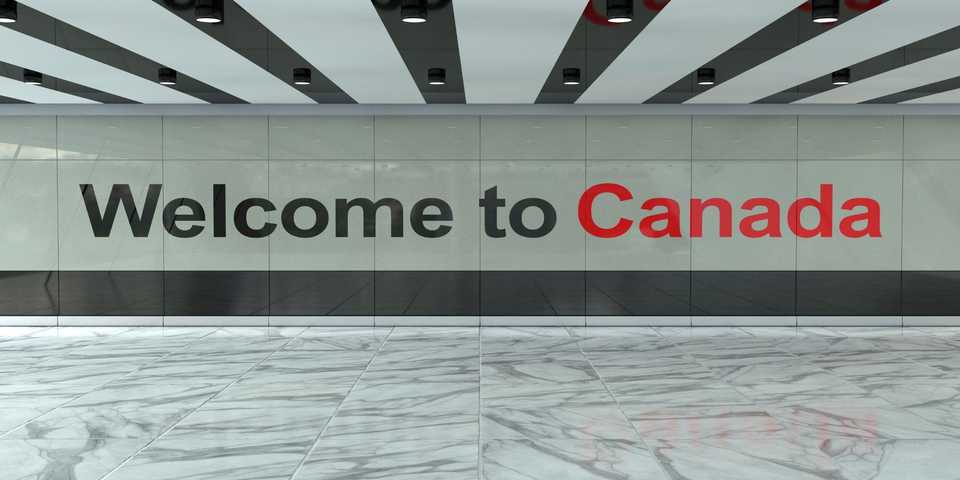Canada’s immigration system can be challenging to navigate due to its many different programs and streams available.
Whether you’re coming to Canada as a foreign worker, as an asylum seeker, or as a sponsored family member, you will be required to submit all your necessary paperwork to Immigration, Refugees and Citizenship Canada (IRCC).

While the process may be lengthy and tedious, understanding how it works will save you hours of time and any extra headaches.
Keep scrolling to see JuriGo’s step-by-step immigration guide – and fill out our form to find the right immigration lawyer in Ontario!
Where should you start your immigration process?
Step one: determine the program that you’re eligible for
If you’re considering moving to Canada and aren’t sure what immigration stream to apply for, one of the initial steps is to use the " Come to Canada " tool accessible on IRCC’s official website. This user-friendly online tool allows individuals to determine their eligibility for various immigration programs .
By inputting your specific details such as age, education, language skills, work experience, and other factors, the tool will instantly give you an assessment of which immigration streams you may qualify for.
If you’re still unsure about which program you should apply for, keep scrolling for a detailed list of the available pathways to permanent residency in Ontario!
Step two: gather your documents
Once you know you’re eligible for a program, it’s time to start gathering your documents to apply. You’ll need your passport, language test results, police certificates, education assessments, among other documents.
Make sure you start collecting all your paperwork in advance because some programs, like Express Entry, require that you create a profile on their website and, once they invite you to apply, you will only have 60 calendar days to submit a complete application .
Ensuring that you have all your documents ready early will also prevent your application from being slowed down because of missing documents or delays in obtaining them.
Step three: submit your application
Once you've chosen a program and have your documents ready, it's time to apply. Before you submit anything, double-check every detail.
Mistakes on your application can lead to delays or rejections. Make sure your name is spelled correctly, and dates are accurate, and that you've answered every question.

Most applications come with a fee that you'll need to pay online. These fees can vary depending on the type of application and the number of family members you're including. Keep a record of the transaction for your files.
Once you've submitted your application, you should receive a confirmation that it has been received. Keep this confirmation safe as you might need it later in the process.
Step four: wait for a decision
The waiting game begins once your application is submitted. During this period, your application will be first reviewed by immigration officers to check that you have submitted everything that was required. They might ask for additional documents or information, so keep an eye on your email or application account.
This will likely be a stressful period. While you can check average processing times online for a rough idea of how long you might have to wait, remember that these times are just estimates.
Additionally, IRCC does not expedite applications, so it’s important to remain patient during this process. In most cases, you will be able to check your application’s status online and you will receive emails when there are any updates.
If anything changes while your application is being processed (such as your address, family status, or job), update your application as soon as possible to help avoid any unnecessary delays.

In the rare case that your application exceeds IRCC’s average processing times by a few weeks or months (since delays by a few days are common), reach out to an immigration lawyer or contact your Member of Parliament if you or your relatives live in Canada.
They will look into your specific case and determine the reason for excessive delays.
If this happens, or if you need to report important changes, you may also contact IRCC through their Webform and they will respond within a few business days. While you may also contact IRCC by phone at 1-888-242-2100, note that they may keep you on hold for a few hours due to the large amount of other callers.
Step five: if your application is unsuccessful, you may request an appeal
In the unfortunate case that your application is denied, you may be able to request an appeal depending on the type of application you submitted.
For instance, temporary resident decisions, such as for work or study permits, can’t be appealed and you will instead need to reapply .
If you believe that your application was unfairly handled, you may ask for a judicial review through the Federal Court of Canada, for which you will need an immigration lawyer to represent you and help you navigate the process.
On the other hand, the Immigration and Refugee Board (IRB) offers a pathway for appeals on different types of immigration applications. The IRB is a crucial component of the immigration framework, and professional legal guidance is strongly recommended for navigating this complex process.
JuriGo can help you find a legal expert who can provide invaluable assistance, ensuring that the right steps are taken and that your case is effectively presented in court!

When it comes to seeking refugee protection, claims can be initiated upon arrival in Canada, either at a port of entry by speaking to an officer from the Canada Border Services Agency (CBSA) or at an inland office by speaking to officers from the CBSA or IRCC.
The eligibility of the claim is assessed by these officers, and if deemed appropriate, the claim is referred to the Refugee Protection Division (RPD) under the IRB to commence the formal protection process. Should the RPD's decision be unfavourable, the Refugee Appeal Division (RAD) serves as the next step, reviewing appeals from the RPD's decisions on refugee claims.
Furthermore, the IRB adjudicates appeals related to other immigration matters through the Immigration Appeal Division (IAD).
This division deals with appeals concerning refused family class sponsorships, removal orders against permanent residents or protected persons, residency obligation failures by permanent residents, and appeals by the Minister of Public Safety on inadmissibility decisions.
Understanding these procedures is vital for anyone involved in the Canadian immigration process, and securing a knowledgeable lawyer can make a significant difference in the success of appeals.
Available Pathways to Permanent Residency in Ontario
The immigration system can be extremely complex and finding information about each program and its eligibility can be confusing, even when using the “Come to Canada” tool mentioned above.

For these reasons, JuriGo has also compiled the following list of all currently available pathways to Permanent Residence in Ontario. Each program has its own set of requirements, so it’s important to read about them first and determine what programs you may qualify for.
Remember, immigration rules can change, and JuriGo always recommends checking the latest information or speaking with an immigration lawyer about your specific situation.
Ontario Provincial Nominee Program (PNP)
PNPs allow Ontario to nominate individuals for immigration based on the province’s economic needs. Ontario looks for people with certain skills, education, and work experience. To qualify, you will need to fit into one of the program's categories, which include options for skilled workers, graduates, and business owners .
Once you find the category that fits your situation, you apply directly to the Ontario government. If Ontario thinks you're a good match, they'll give you a nomination for you to apply for permanent residency through the federal government under IRCC, where your medical background, security, and other requirements will be assessed.
While there are benefits to this program, such as it being a quicker path to permanent residence compared to some other programs, there are also a few rules.
For instance, Ontario can only nominate a certain number of people each year, so not everyone who applies will get in. You also have to meet the specific criteria of the stream you're applying for, which can include job offers, investment amounts, or language levels.
The streams available under this program are the following:
- Foreign Worker stream: This stream targets individuals who have a valid job offer in a skilled position in Ontario.
- International Student stream: Designed for international students with a job offer in a skilled occupation in Ontario, this stream requires candidates to have completed their studies in Canada. The job offer must be at the NOC skill level 0, A, or B.
- In-Demand Skills stream: This stream is for individuals with work experience in specific in-demand occupations such as agriculture or construction. A job offer in Ontario is also a necessity for this stream, and the job must be in one of the eligible in-demand occupations.

- Masters Graduate Stream: Aimed at international students with a master's degree obtained in Ontario, this stream does not require a job offer or work experience.
Applicants must demonstrate language proficiency and have legal status in Canada (if applicable). The application is points-based, and only the highest-ranking candidates are invited to apply.
- PhD Graduate Stream: This stream is for those who have completed a PhD program at an eligible institution in Ontario. Similar to the Masters Graduate Stream, it does not require a job offer.
Candidates must have lived in Ontario for at least two years during their PhD studies and demonstrate the intent to live and work in Ontario.
- Entrepreneur Stream: The Entrepreneur Stream is for individuals looking to start a business in Ontario.
Applicants need to meet certain net worth and investment criteria, and their business proposal must be approved by the Ontario government. This stream has a points system and conducts periodic draws to invite candidates to apply based on their scores.
Express Entry System
The Express Entry System ranks applicants using a Comprehensive Ranking System (CRS), which assigns points based on factors such as age, education, work experience, and language proficiency in English or French.
Comprising three streams, the system is known for its fast processing times and is a popular pathway for skilled workers worldwide.
- Canadian Experience Class (CEC): The CEC is tailored for individuals who have at least one year of work experience in Canada and are seeking permanent residence.
- Federal Skilled Worker Program (FSWP): As one of the oldest and main pathways for skilled workers to immigrate to Canada, the FSWP considers candidates based on factors like work experience, language ability, and education. Applicants must have at least one year of full-time skilled work experience and meet other criteria to be eligible.
- Federal Skilled Trades Program (FSTP): This program provides a route for skilled tradespeople to gain permanent residence in Canada and address labour shortages across the country.
Family Sponsorship
Family sponsorship is a way to reunite families in Canada. If you have a relative who is a Canadian citizen or permanent resident, they may be able to sponsor you to live in Ontario.
- Spouses, partners, or dependent children: This sponsorship is for Canadian citizens or permanent residents who wish to sponsor their spouse, conjugal, or common-law partner, and dependent children. The sponsor must meet specific income requirements and prove the authenticity of the relationship.
- Adopted children: Canadian citizens or permanent residents can sponsor their legally adopted children. The process involves proving that the adoption is legal in the child's home country and meets the province's requirements where the sponsor resides.

- Other relatives: If a Canadian citizen or permanent resident doesn't have a spouse, partner, child, or parent to sponsor, they may sponsor certain other relatives.
- Parents and grandparents: Canadian citizens or permanent residents can sponsor their parents and grandparents for permanent residence. This program often reaches its application cap quickly due to high demand. There is also a Super Visa option available that allows parents and grandparents to visit for extended periods.
Refugees and Asylum
Canada has a robust system for refugees and asylum seekers, offering protection to those fearing persecution or danger in their home countries. Key streams to apply include the following:
- Irregular Border Crossings and Asylum: Individuals who cross into Canada irregularly still have the right to claim asylum and go through the formal asylum process, which includes security and eligibility screenings.
- Sponsor a Refugee: Canadian citizens and permanent residents can engage in sponsoring refugees to come to Canada, helping them to settle and integrate into Canadian society.
- Claim Refugee Protection from Inside Canada : Those already in Canada who fear persecution if they return to their home country can apply for refugee protection from within Canada.
- Health-care Workers Permanent Residence Pathway : This program is designed for refugee claimants who have contributed to the Canadian healthcare system during the COVID-19 pandemic.

- Economic Mobility Pathways Pilot: This initiative targets skilled refugees, allowing them to immigrate through existing economic immigration pathways.
- Canada’s Response to the Situation in Afghanistan : In response to the crisis in Afghanistan, Canada has implemented special programs and measures to assist Afghans, including prioritizing the processing of their immigration application.
Agri-Food Pilot
This program focuses on addressing labour shortages in the agri-food sector and is tailored for workers in specific industries classified under the North American Industry Classification System (NAICS).
Caregivers
The two programs currently available for caregivers are the Home Child Care Provider Pilot and the Home Support Worker Pilot, which are for caregivers who are offered a job in Canada or have Canadian experience as a caregiver.
However, caps apply for the number of applications accepted each year, and these caps were reached quickly in 2023, showing a high demand for the program.
Rural and Northern Immigration Pilot (RNIP)
This is a community-driven program aimed at smaller communities to attract skilled foreign workers who are interested in living and working in one of the participating communities. Each community has specific requirements and processes, reflecting their unique economic needs and opportunities.

Self-Employed:
For entrepreneurs and investors, Canada offers business immigration programs that may lead to permanent residency. This program is composed of the following two streams:
- General Self-Employed Persons Program: For those who have relevant experience in cultural activities or athletics and are willing to make a significant contribution to the cultural or athletic life of Canada.
- Start-up Visa Program: The Start-up Visa Program is aimed at immigrant entrepreneurs with the potential to create innovative businesses in Canada that can create jobs and compete globally.
Permanent Residence Pathways for Hong Kong Residents
This initiative demonstrates Canada’s commitment to supporting Hong Kong residents, reflecting the historical and current connections between the two regions. The program has two streams: Stream A for In-Canada graduates, and Stream B for individuals with Canadian work experience.
Permanent Residence for Ukranian nationals with family members in Canada
Permanent Residence for Ukranian nationals with family members in Canada
In response to the crisis in Ukraine, Canada has introduced a temporary immigration program designed to facilitate the reunification of Ukranian nationals with their loved ones residing in Canada.

The program includes two categories of family members:
- Category 1: Ukrainian nationals who are family members of a Canadian citizen or permanent resident currently residing in Canada.
- Category 2: Spouses or common-law partners of a Ukrainian national who has family in Canada but is unable to leave Ukraine, is missing, or has passed away.
Conflict in Sudan: Temporary Immigration Measures
Canada’s response to the conflict in Sudan includes temporary immigration measures designed to support Sudanese nationals and the families of Canadian citizens and permanent residents who had to flee Sudan.
These measures have been extended until October 27, 2024, allowing Sudanese nationals in Canada to extend their temporary resident status or apply for other temporary resident documents. The measures also prioritize the processing of permanent and temporary residence applications for those living in Sudan.
Humanitarian and Compassionate Considerations
Under Canadian immigration law, individuals who may not meet the standard immigration criteria under any other program can apply for permanent residence on the grounds of humanitarian and compassionate considerations.
Individuals must be in Canada and need an exemption from one or more requirements of the Immigration and Refugee Protection Act to apply. The application is an exceptional measure, not a regular pathway to permanent residence, and is considered only when there are compelling reasons justifying the exemptions requested.
These reasons must be detailed in the application, and the simple inconvenience of returning to one's home country is not considered a compelling factor in the absence of other significant circumstances.
Ready to begin your immigration journey? Find a Lawyer!
Starting a new life in Ontario can be an exciting adventure filled with prospects for growth, diversity, and enrichment. This path, while rewarding, also requires careful planning and preparation.
As you prepare to set out on this new journey, remember that professional advice can be your compass.
By completing JuriGo’s form below, you can secure the legal assistance you need to navigate these waters with confidence.
Our service is completely free of charge and without any obligations!